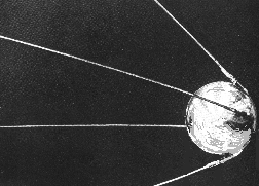A satirical posting circulating on the Net…
BATON ROUGE, LA. – The White House announced today that President Bush has successfully sold the state of Louisiana back to the French at more than double its original selling price of $11,250,000.
“This is a bold step forward for America,” said Bush. “And America will be stronger and better as a result. I stand here today in unity with French President Jack Chirac, who was so kind to accept my offer of Louisiana in exchange for 25 million dollars cash.”
The state, ravaged by Hurricane Katrina, will cost hundreds of billions of dollars to rebuild.
“Jack understands full well that this one’s a ‘fixer upper,'” said Bush. “He and the French people are quite prepared to pump out all that water, and make Louisiana a decent place to live again. And they’ve got a lot of work to do. But Jack’s assured me, if it’s not right, they’re going to fix it.”
The move has been met with incredulity from the beleaguered residents of Louisiana.
However, President Bush’s decision has been widely lauded by Republicans.
“This is an unexpected but brilliant move by the President,” said Senate Majority Leader Bill Frist. “Instead of spending billions and billions, and billions of dollars rebuilding the state of Louisiana, we’ve just made 25 million dollars in pure profit.”
“This is indeed a smart move,” commented Fox News analyst Brit Hume. “Not only have we stopped the flooding in our own budget, we’ve made money on the deal.”
The money gained from ‘The Louisiana Refund’ is expected to be immediately pumped into the rebuilding of Iraq.
Footnote: The original Louisiana Purchase (in 1803) involved far more territory than the state of Louisiana. Indeed, according to Wikipedia,
the lands purchased contained parts or all of present-day Arkansas, Missouri, Iowa, Minnesota west of the Mississippi River, North Dakota, South Dakota, Nebraska, New Mexico, northern Texas, Oklahoma, Kansas, the portions of Montana, Wyoming, and Colorado east of the Rocky Mountains, the portions of southern Manitoba, southern Saskatchewan and southern Alberta that drain into the Missouri River, and Louisiana on both sides of the Mississippi River including the city of New Orleans.
In fact, the land included in the Purchase comprises over one-quarter of the territory of the modern continental United States. And all for $3 per square mile!




